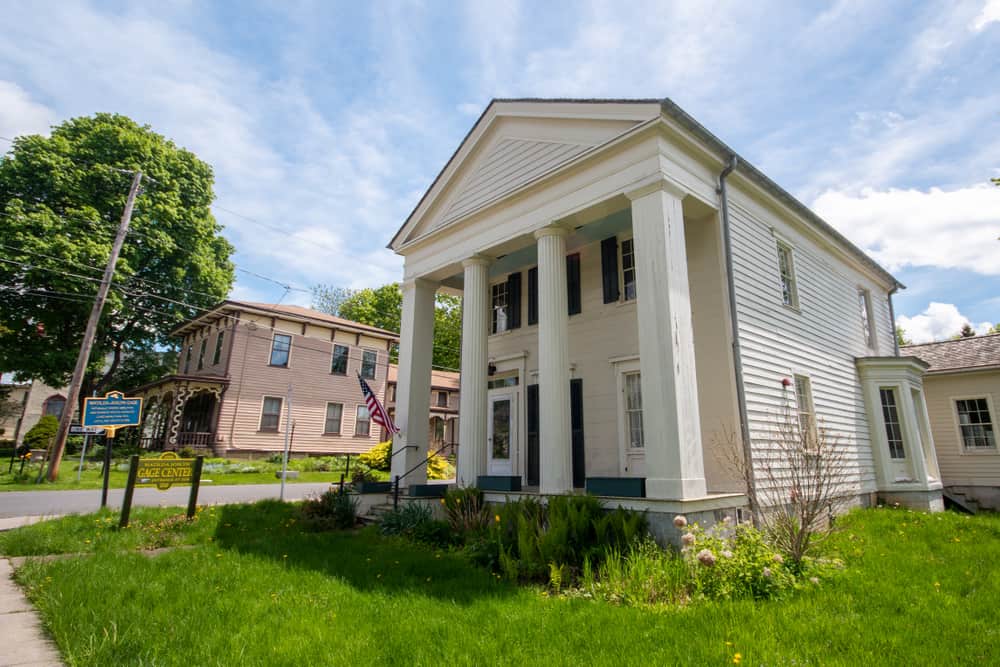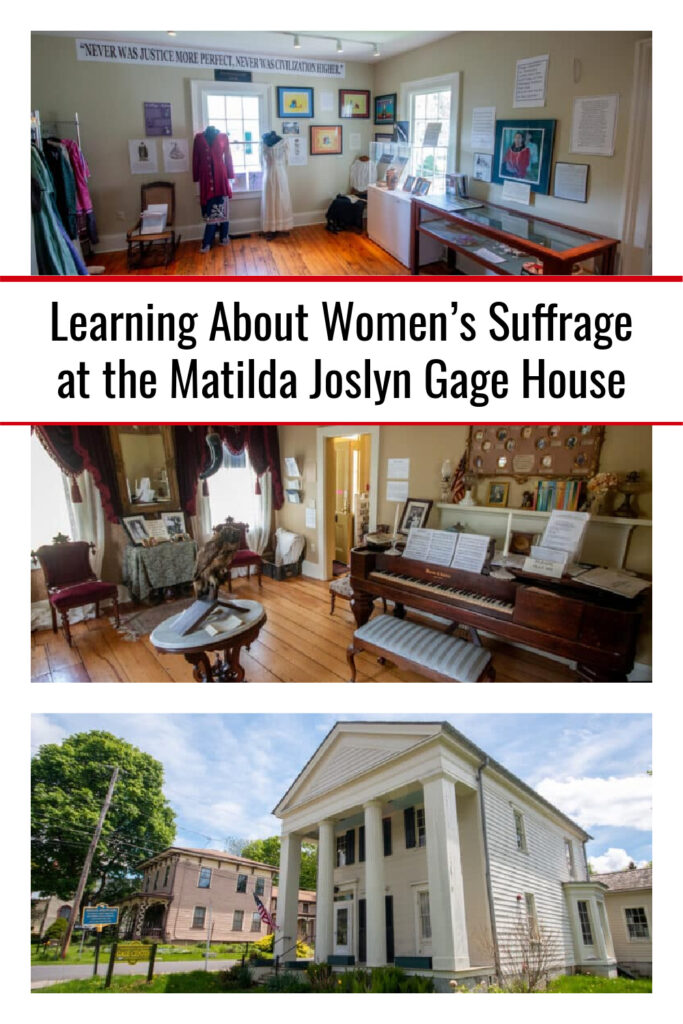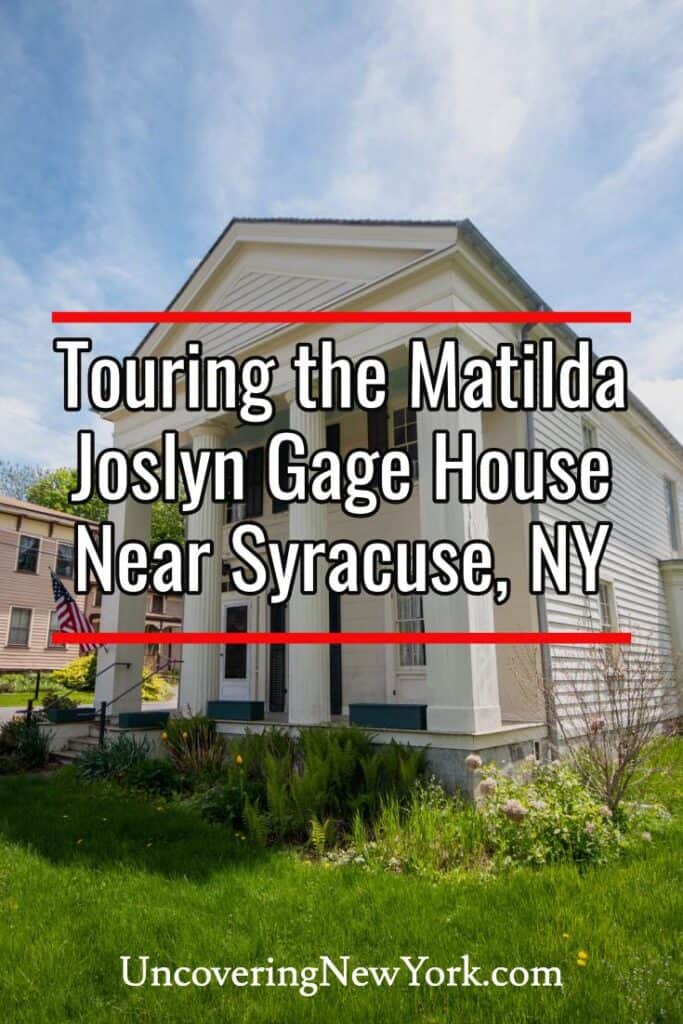As baffling as it may seem today, there was a time not too long ago when women were not allowed to vote in the United States.
That all changed when the 19th Amendment was adopted by Congress on June 4, 1919, and ratified by the states on August 26, 1920. This amendment gave many women the right to vote, though it should be noted that many non-white women were stilled denied the right to vote in many states.
The success of the Women’s Suffrage Movement can trace its roots back nearly 80 years prior to the adoption of the 19th Amendment, and there were many women that were impactful and well known today such as Susan B. Anthony and Elizabeth Cady Stanton.
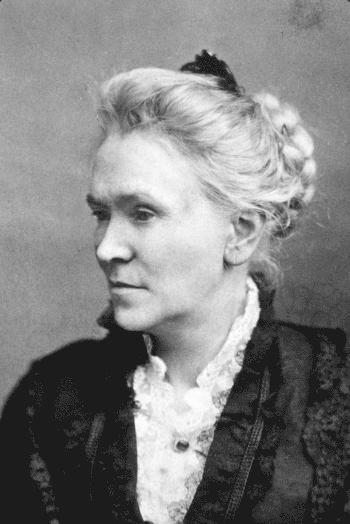
However, there’s another woman who was incredibly impactful on the movement but is often forgotten by history books: Matilda Josyln Gage.
Matilda Joslyn Gage began to gain prominence in the Women’s Suffrage Movement when she was the youngest speaker at the National Women’s Rights Convention in Syracuse in 1852 when she was just 26 years old.
Over the coming decades, Gage, who was also a conductor on the Underground Railroad, was an influential figure, often collaborating with Susan B. Anthony and Elizabeth Cady Stanton, and was the president of the National Women’s Suffrage Association from 1875-1876.
However, Gage was known as being one of the most progressive members of the women’s rights movement, and, as the movement made concessions in an effort to further their primary cause, Gage was eventually left on the outside looking in.
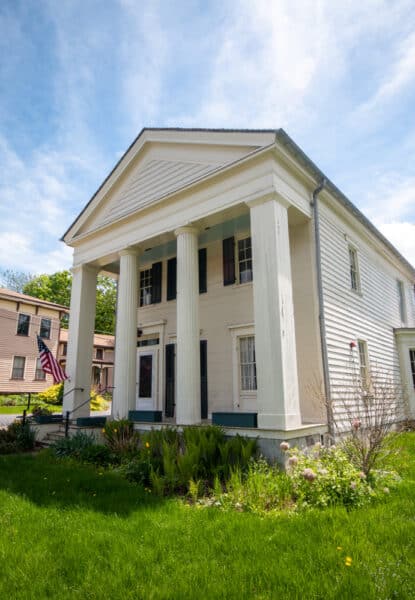
Wanting to learn more about her impactful life, I was excited to visit the Matilda Joslyn Gage House just outside of Syracuse in Fayetteville, New York.
Gage lived in this home 1854 until her death in 1878. During that time, the home was used as a stop on the Underground Railroad, as well as a place that Gage fought for the rights of women, African Americans, and Native Americans.
Today, the Matilda Joslyn Gage Foundation is based out of the home and helps to tell the story of her impact on the United States. Much of the home’s first floor has been turned into a museum that helps to tell this story.
The museum isn’t overly large but does an excellent job covering Gage’s life and the causes for which she fought.
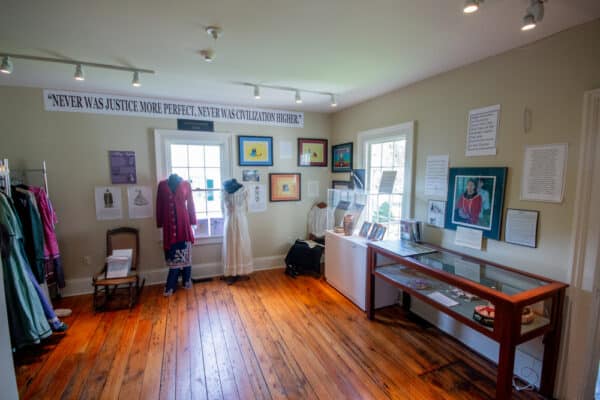
The back rooms of the home through which you enter when you visit are each themed with a different cause that Gage fought for: African American rights, Native American rights, and women’s rights. There is also a room that has information on local history.
These rooms each offer a collection of artifacts and signage that do an excellent job highlighting these causes and Gage’s impact on them.
Another room in the home offers displays on Gage and a nice video that covers her life and impact on the women’s suffrage movement.
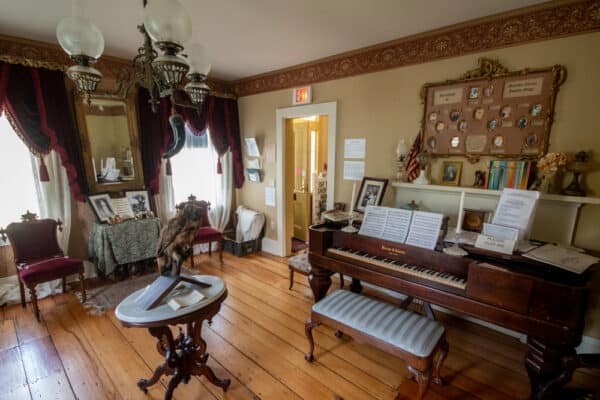
The front parlor of the home is set up much as it would have looked when Gage and her family lived in the home. In fact, many of the pieces here belonged to the family.
Interestingly, the home has an unexpected connection with a piece of literature: “The Wonderful Wizard of Oz.”
L. Frank Baum, the author of that famous book, as well as others in the series that were written later, was a struggling actor and playwright when he fell in love with Gage’s youngest daughter, Maud. Baum was from the nearby community of Chittenango (which has a great museum that honors his life and legacy).
In 1882, L. Frank Baum and Maud Gage were married in the front parlor of his in-laws home, a spot that you can see in the home today.
There’s no question that the Matilda Joslyn Gage House in Fayetteville, New York, is fairly small. However, for those that love history, it’s a really great spot to visit to near Syracuse learn more about the fight for equality for women and minorities in the 19th century.
While Gage isn’t well known today, a visit to her home gave me a great appreciation for the impact she had forwarding equality in the United States.
Looking for more places to visit nearby? Check out the Stickley Museum, Green Lakes State Park, Chittenango Falls State Park, and Pratts Falls.

